Switching careers can be a daunting yet exciting journey, and you're not alone in navigating these changes. Whether you're looking to explore new passions or build upon existing skills, a well-crafted cover letter can be your ticket to standing out. In this article, we'll discuss how to effectively communicate your reasons for the change and highlight your transferable skills. So, if you're ready to take the plunge into a new career path, keep reading to discover how to write an impactful career change cover letter!

Clear articulation of motivation for change
A desire for personal and professional growth often drives individuals to seek career changes, leading them to explore new fields that align with their evolving aspirations. For instance, an accountant may transition to a project management role to leverage their organizational skills while pursuing their passion for leadership. This decision may stem from experiences in previous positions, such as leading team initiatives or successfully managing client accounts, which fuel the motivation for embracing new challenges. Additionally, gaining certifications in project management methodologies, such as PMP or Agile, can enhance credibility and demonstrate a commitment to mastering the necessary skills for the new role. Understanding industry trends and job market demands in the desired field ensures a well-informed decision, ultimately paving the way for achieving long-term career fulfillment.
Relevant transferable skills and experiences
Navigating a career transition can be significantly enhanced by recognizing and articulating relevant transferable skills and experiences. Individuals shifting from roles like teaching to corporate training can capitalize on interpersonal communication skills, developed during years of engaging with students. Skills in lesson planning can translate effectively to project management, highlighting organizational capabilities. Additionally, adaptability, often fine-tuned in dynamic classroom environments, showcases an ability to thrive in fast-paced business settings. Professional development workshops may serve as experiences that demonstrate a commitment to lifelong learning and skill enhancement, aligning with potential employer values. Highlighting proficiency in technology adoption, such as utilizing educational tools, emphasizes comfort with digital platforms prevalent in modern workplaces.
Alignment with new industry or role
Transitioning careers requires a clear alignment with the new industry, emphasizing relevant skills and experiences. For example, a project manager moving into healthcare needs to highlight organizational abilities and communication skills, crucial for leading teams in hospital environments. Understanding industry-specific regulations, such as HIPAA compliance, becomes essential. Networking events, webinars, and certification courses like Certified Scrum Master can further demonstrate commitment to the new path. Tailoring the resume to reflect transferable skills, like budgeting and stakeholder engagement (especially in medical projects), enhances appeal to potential employers. Crafting a compelling narrative around the reasons for the change, perhaps citing a personal experience with healthcare services, can also resonate with hiring managers in this new field.
Demonstrating adaptability and learning capability
A career change can be a pivotal moment in one's professional journey, reflecting adaptability and a strong capacity for learning new skills. Transitioning from fields such as marketing, often characterized by data analysis and strategic thinking, to technology roles like software development can illustrate this flexibility. Professionals can leverage experiences from previous positions at renowned companies, like marketing management at Procter & Gamble, to highlight transferable skills such as project management and consumer insights. Enrolling in coding boot camps, such as General Assembly, or online platforms like Coursera demonstrates commitment to acquiring essential knowledge in programming languages like Python or Java. Networking with industry professionals at events such as TechCrunch Disrupt can further enhance understanding of current trends and challenges in the tech landscape. Adapting to a new industry landscape requires not only resilience but also a proactive approach to continuous learning and skill enhancement.
Expressing enthusiasm for new opportunities
A career transition presents an exciting opportunity for growth and exploration in diverse fields. Embracing changes reflects resilience, adaptability, and a willingness to acquire new skills. Many professionals, like those in the corporate sector, often seek fresh challenges that align with personal passions and strengths. The process might involve identifying transferable skills--such as communication, project management, or technical expertise--that can enhance performance in a new industry. Networking events, workshops, or online courses offer platforms for learning and connecting with others in the desired field. The journey may also include setting specific goals, researching potential employers, and crafting a compelling narrative showcasing enthusiasm for different roles. Ultimately, this transition fosters both personal and professional development, paving the way for a fulfilling career.

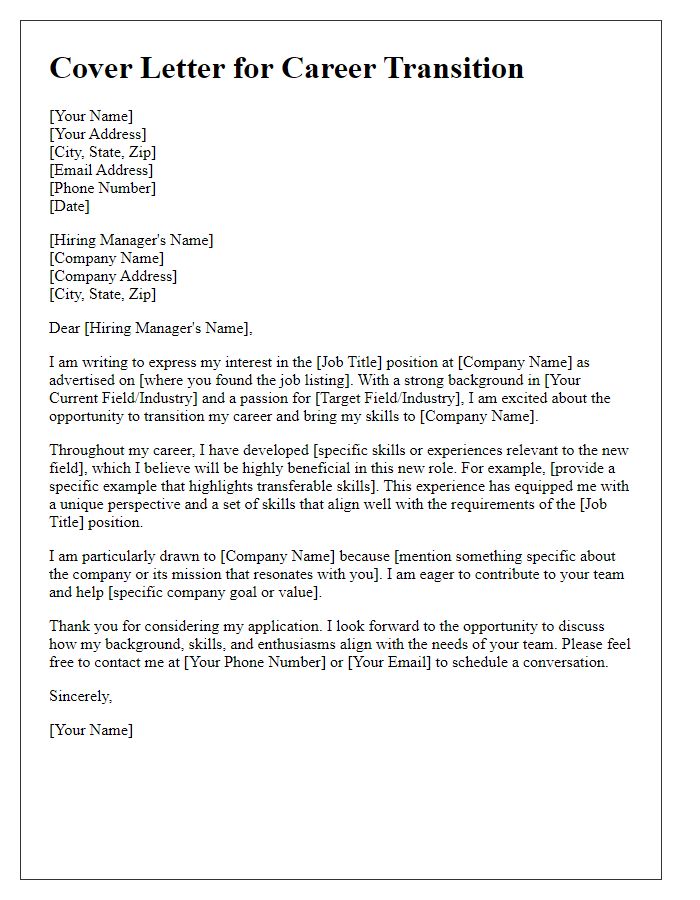
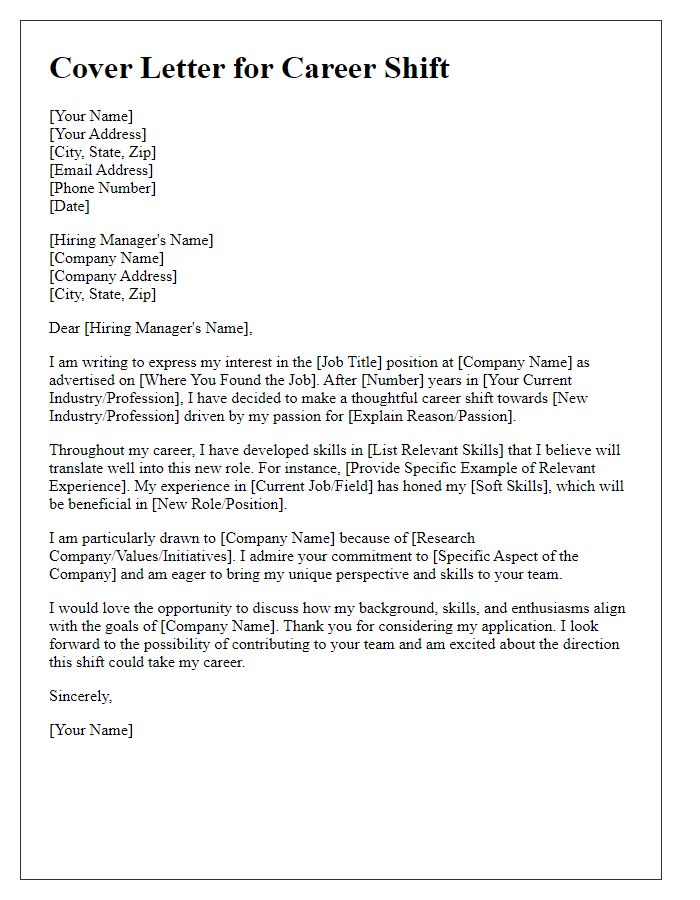
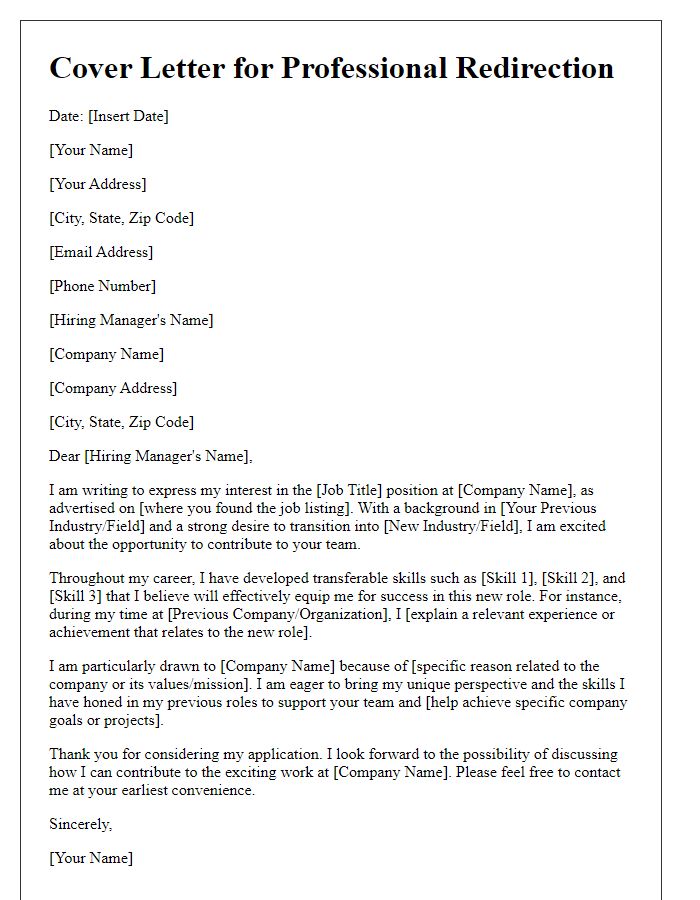
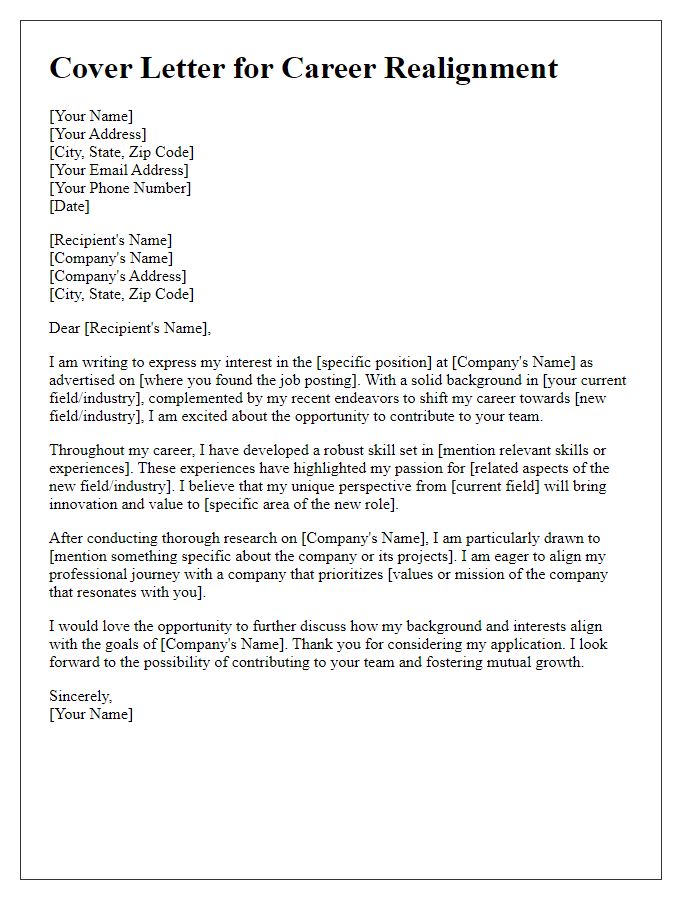
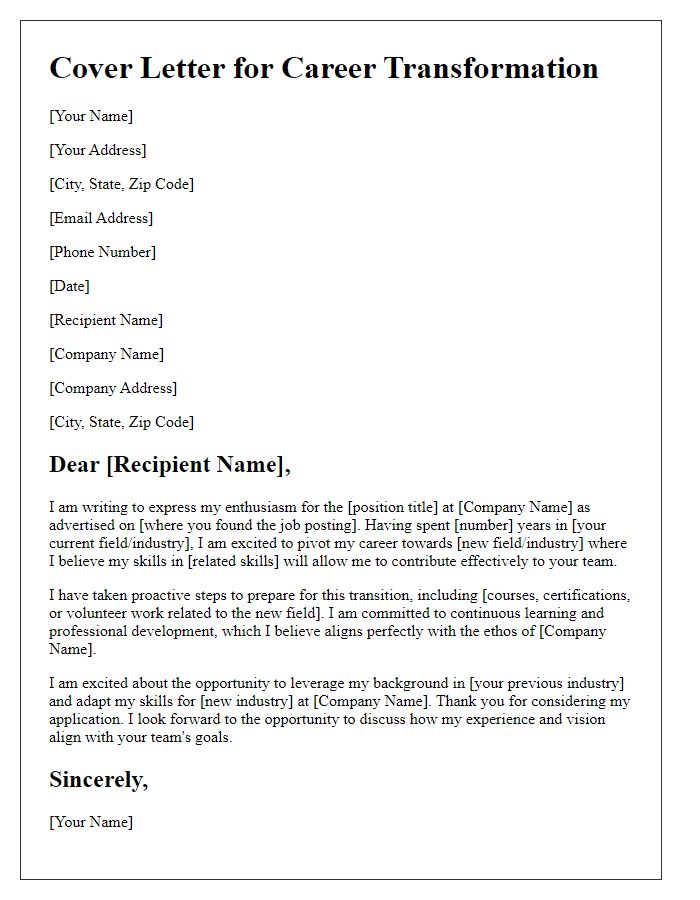
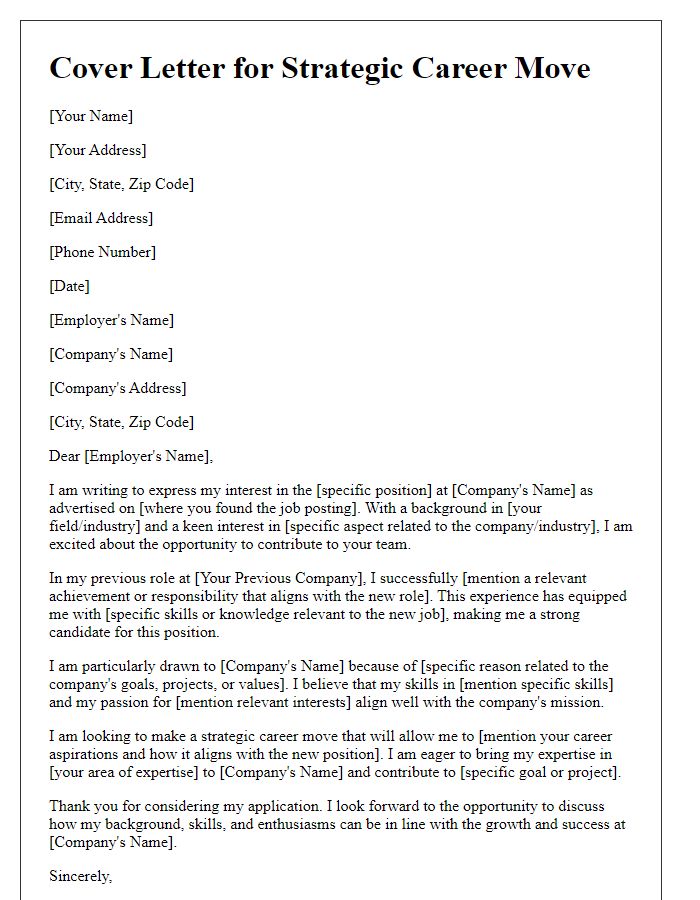
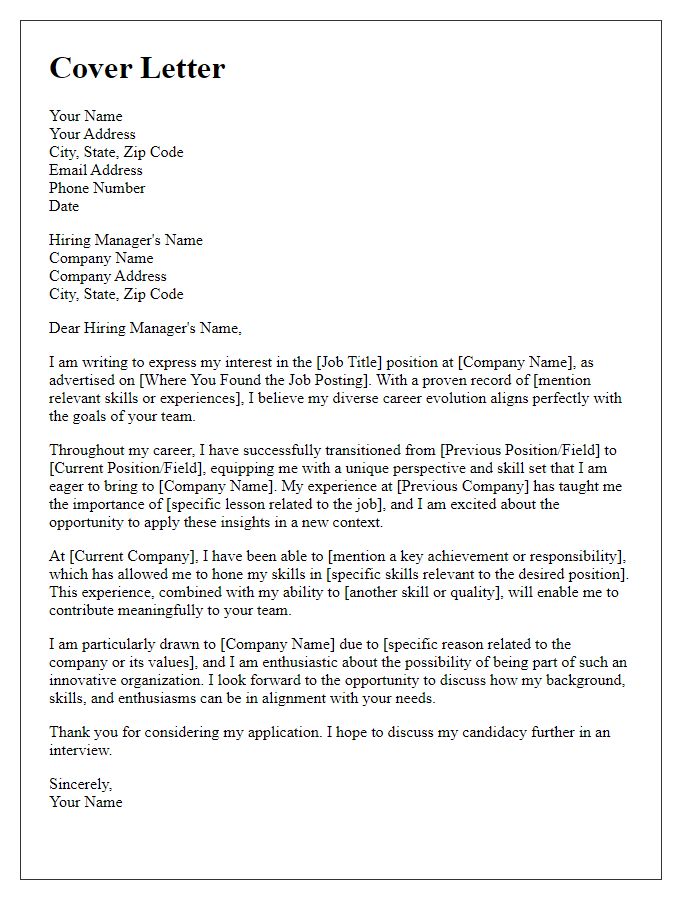
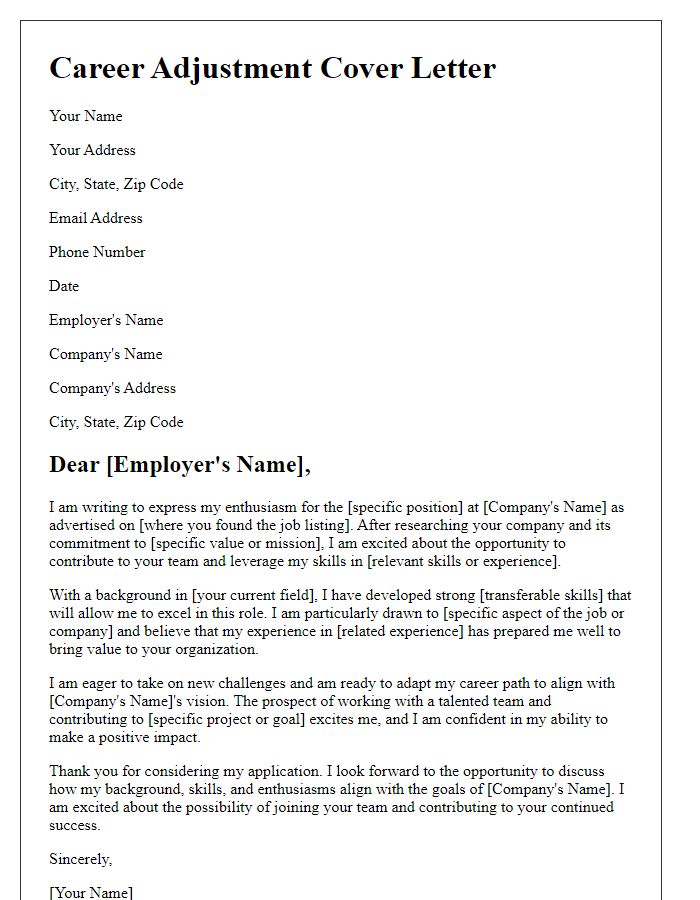
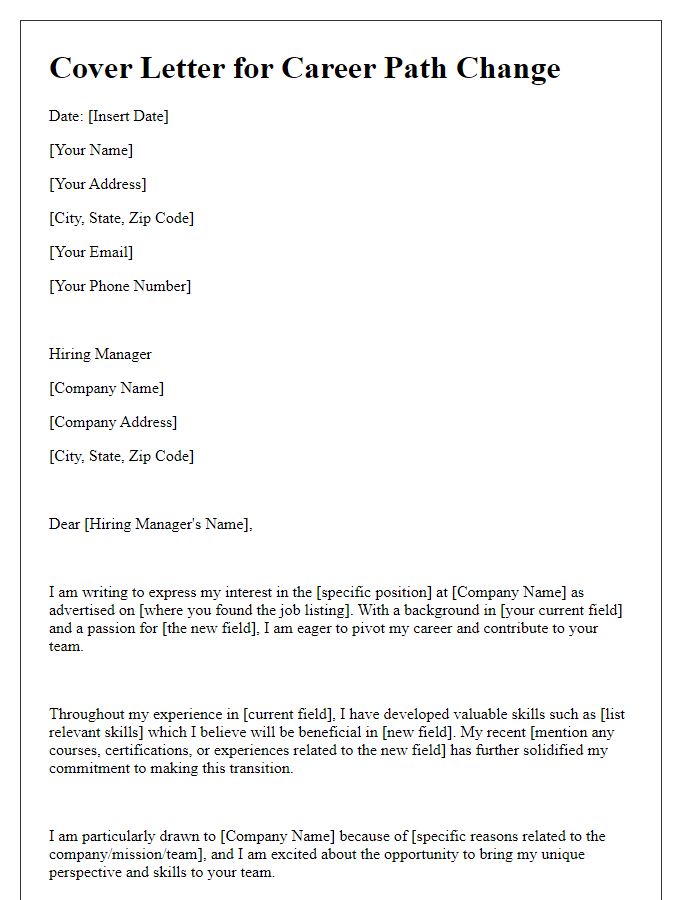
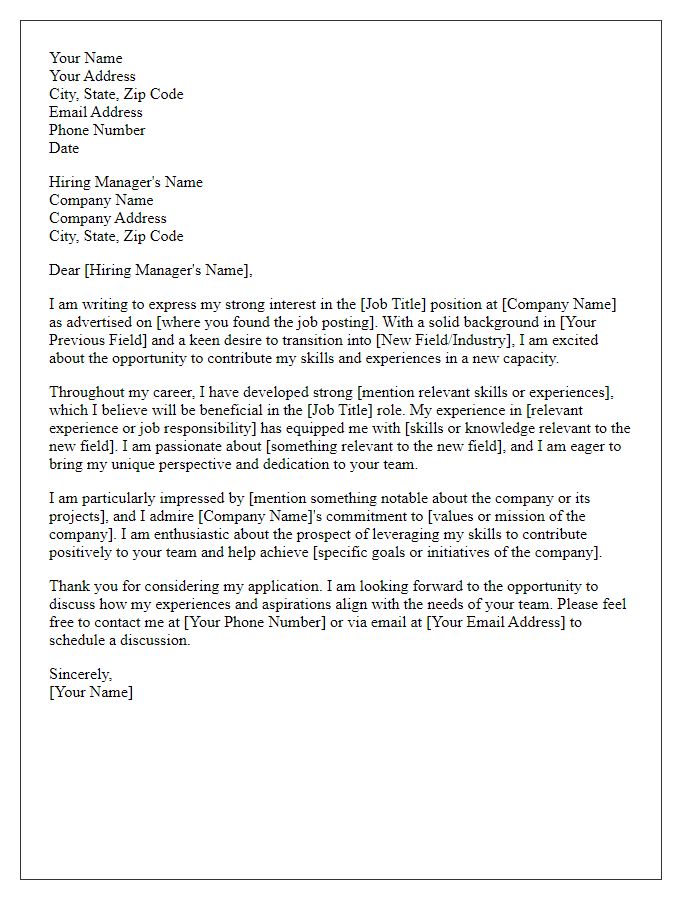


Comments